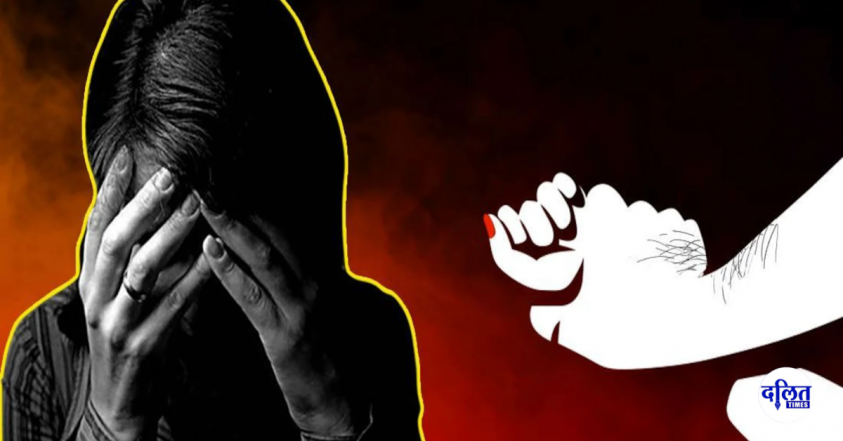In a significant development, Sadashivanagar police have registered a case against Infosys co-founder Senapathy Kris Gopalakrishnan and 17 members of the Indian Institute of Science (IISc) under the SC/ST (Prevention of Atrocities) Act. The legal action stems from a complaint filed by Dr. D. Sanna Durgappa, a former faculty member at IISc’s Centre for Sustainable Technologies.
Dr. Durgappa, a member of a tribal community, alleged wrongful dismissal and claimed he was subjected to caste-based abuse during his tenure. According to his complaint, fabricated allegations of sexual harassment were orchestrated by the then IISc Director, Prof. Anurag Kumar, and other faculty members, culminating in his termination in 2014. Despite being exonerated by the SC/ST Committee of the Karnataka Legislative Assembly, Dr. Durgappa was not reinstated.
He further accused IISc officials of conspiring to tarnish his reputation, isolate him professionally, and create a hostile work environment through caste-based abuse and threats. The case underscores pressing issues of workplace discrimination and institutional misconduct at one of India’s premier research institutions.
Also Read : Ramabai Ambedkar: A Silent Social Reformer
The accused persons denied a functional Lab , a chamber and other basic facilities to the complainant. They did not even provide access to a toilet . Dr. Sanna urgappa said “This had been happening for a while and repeated complaints to the director had not yielded any result. In fact, I was harassed more and he along with others orchestrated the sexual harassment complaint. They sent one of my students to my office at night after they had promised her a job, and then dismissed me over
sexual harassment charges” A project called C-BELT was allotted to the CST department however Dr.DAurgappas name was not included in the project because he belonged to scheduled castes.An F.I.R was registered in Sadasivanagar District in crime No.217/2016 for the offences punishable under sections 3(1)(ii)(x), 3(1)(ix)(v),3(1)(viii),3(1)(ix),/3(2)(i)(ii) of Scheduled castes and the Scheduled Tribes (Prevention of Atrocities )Act,1989 against Prof.Anurag Kumar, Shri Rajarajan, Dr.H.N.Chanakya, Prof.Sudhakar Rao and Prof.Venkatarama Reddylater quashed by the High Court of Karnataka.
Thereafter Dr. Sanna Durgappa approached the 71st City Civil and Sessions Court, Sadashivanagar police were directed to register an FIR and conduct a thorough investigation. This legal action underscores the gravity of the allegations and prompted increased scrutiny. In January 2025, the Karnataka High Court issued a temporary stay on further investigation and proceedings against Mr. Gopalakrishnan and other accused parties. Mr. Gopalakrishnan expressed disappointment, stating, “I am deeply saddened that a law meant to protect marginalized communities has been misused to make false allegations against me.” He noted that he had only been associated with IISc as Chairman of the Council since 2022, while the alleged incidents occurred in 2014.
Also Read : Kshama Sawant- American member of the council- ground-breaking legislation- ban caste-based discrimination
However, Dr. Durgappa maintains that the accused are attempting to mislead the public and sway opinions in their favor. The court’s intervention highlights the complexity of balancing the protection of marginalized communities with safeguarding against legal misuse.
Challenges of Caste-Based Discrimination in Academic Institutions
The case has brought to light enduring challenges related to caste-based discrimination within academic institutions. It raises critical questions about faculty rights, workplace equality, and the responsibilities of educational institutions in fostering safe and inclusive environments.
Authorities have confirmed that investigations will proceed after the stay order is lifted. The outcome is expected to clarify the veracity of the claims and provide insight into the alleged misconduct.
Legislative Assembly Committee Vindicates Dr. Sanna Durgappa
An investigation by a Legislative Assembly Committee vindicated Dr. Durgappa. The committee concluded that his dismissal in 2014 was unwarranted and based on a fabricated honey-trap case allegedly orchestrated by senior members of the institute. The committee’s findings substantiate Dr. Durgappa’s claims, revealing serious misconduct and discrimination.
/theprobe/media/post_attachments/wp-content/uploads/2023/08/Caste-Based-Discrimination.jpg)
The committee determined that the accusations leading to Dr. Durgappa’s termination were baseless and motivated by ulterior motives. The investigation found no evidence supporting the accusations, which were purportedly designed to damage his reputation and career.
Caste-Based Discrimination and Employment Rights Violations
Evidence presented to the committee highlighted that Dr. Durgappa faced casteist abuse and threats from influential figures at IISc. These hostile actions contributed to a toxic work environment. The termination process was found to violate established procedures, lacking a fair and transparent inquiry.
The report named several senior faculty members and officials as being involved in the wrongful actions. Those implicated include:
- Govindan Rangarajan
- Sridhar Warrier
- Sandya Vishwswaraih
- Hari K V S
- Dasappa
- Balaram P
- Hemalata Mhishi
- Chattopadyaya K
- Pradeep D Sawkar
- Manoharan
Kris Gopalakrishnan, a member of the IISc Board of Trustees and a prominent industry figure, was named in the complaint for his alleged role in the conspiracy. The committee’s findings are expected to have significant implications for IISc and the individuals involved. The report underscores the urgent need for accountability and the establishment of transparent grievance redressal mechanisms within academic institutions. The findings call for stronger safeguards against caste-based discrimination and the protection of employment rights for academic professionals. The case has sparked important discussions about the ethical responsibilities of educational institutions.
Also Read : Caste-Based Social Boycott Alleged in Madhya Pradesh Village Over Prasad Consumption
A Call for Justice and Institutional Reform
Dr. Durgappa’s case serves as a stark reminder of the challenges faced by those fighting systemic misconduct and discrimination. As legal proceedings continue, there is hope that justice will prevail and pave the way for meaningful reforms within academic institutions.
The resolution of this case will likely be pivotal in reinforcing principles of dignity, fairness, and integrity within academic and professional environments. Upholding justice and equality remains crucial to ensuring an inclusive work culture in India’s educational institutions.
(Adv.Bindu Ammini, Legal Advisor of Dalit Times)



